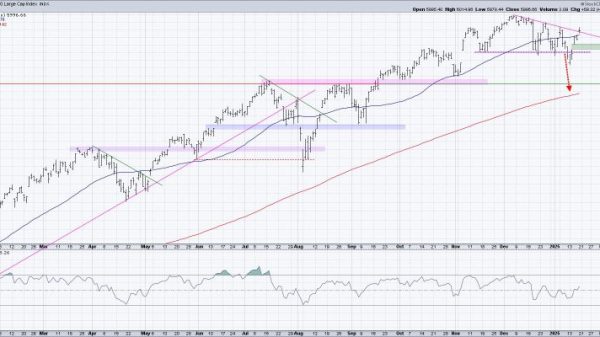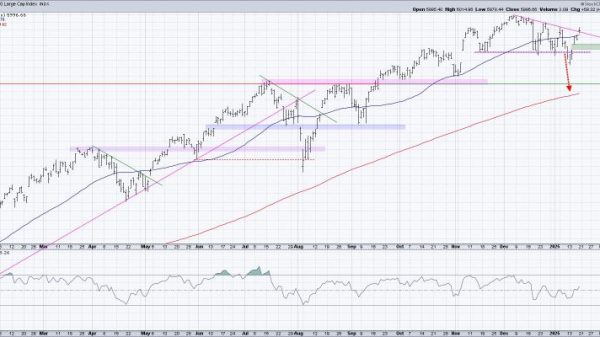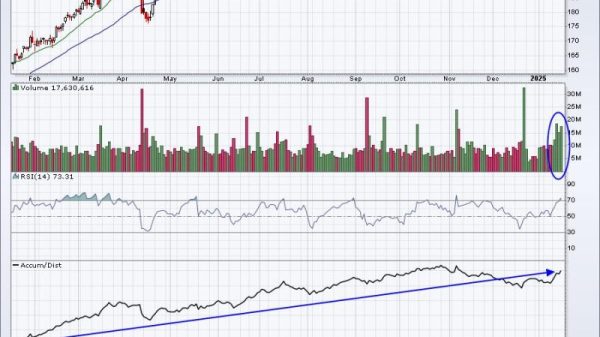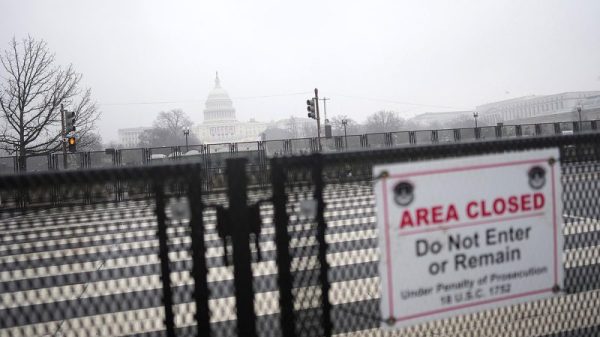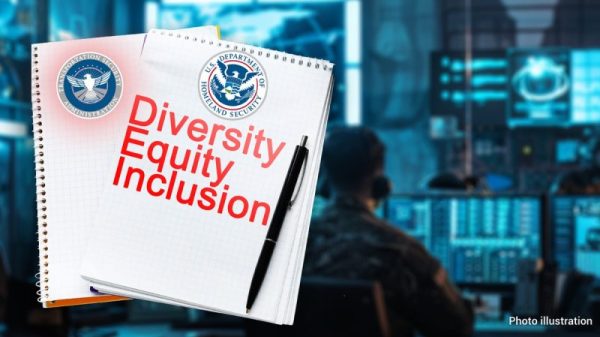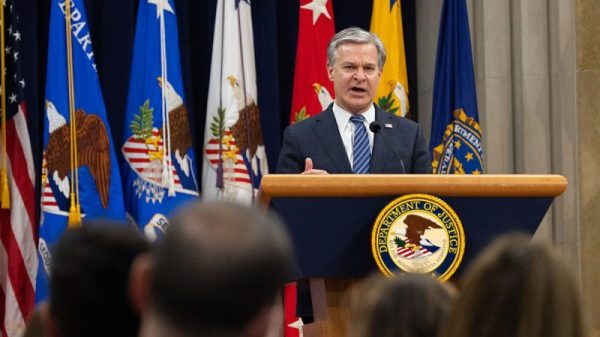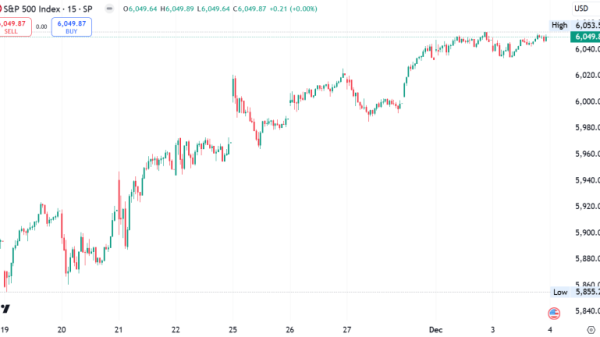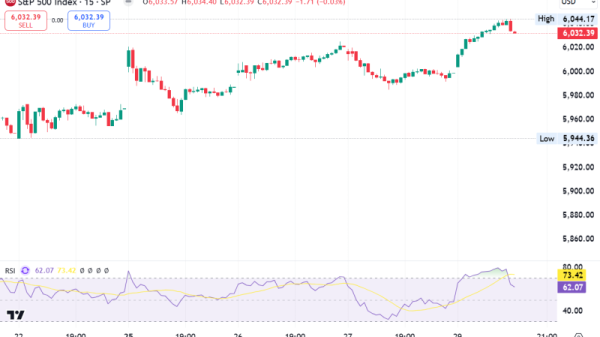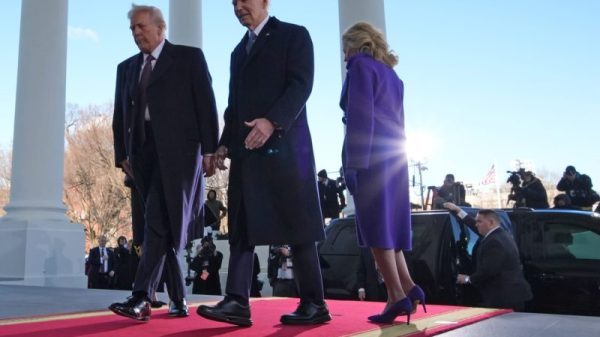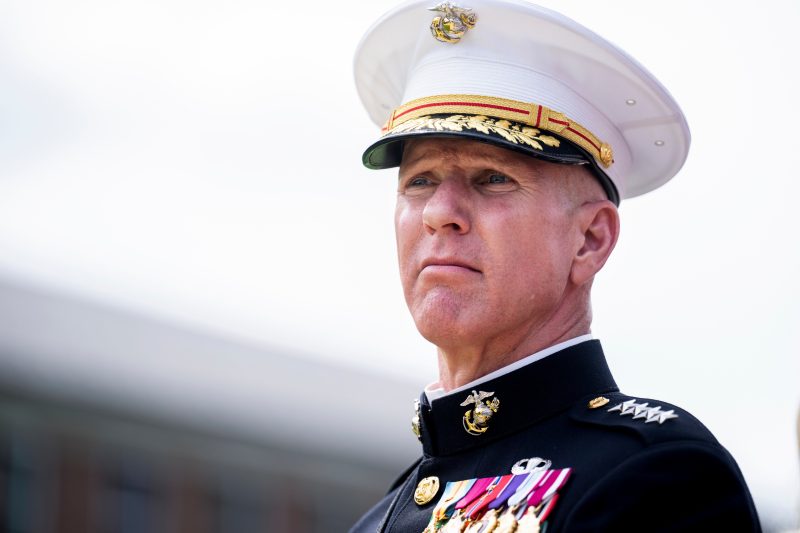Gen. Eric M. Smith has a vision for furthering the Marine Corps’ transformation from a force shaped by two decades of counterinsurgency warfare into one that’s optimized for a great-power clash, possibly with China.
He can’t share it with anyone, though.
The United States, Smith said in a recent interview, finds itself in an “interwar period” and must take full advantage of peacetime to regroup and advance new fighting concepts.
But the general, selected by President Biden to become the Marines’ next top officer, is one of more than 300 senior military leaders whose nominations are on hold, caught in an acrimonious months-long dispute between Sen. Tommy Tuberville (R-Ala.) and the administration stemming from the Pentagon’s abortion policy. And so, Smith said, for now he must “ruthlessly adhere” to admonitions from the Senate that he not presume his next assignment is assured.
“People say, ‘What’s your commandant’s planning guidance?’” Smith said, referring to a major document that the Marine Corps leader typically distributes at the outset of his term, to set priorities and expectations for the 200,000 active-duty troops and reservists under his command. The general’s reply: “You’ll have to ask the 39th commandant when that person is confirmed,” he said, “because I cannot work on that document.”
At 58, Smith is battle-tested — in Iraq, in Afghanistan and, equally importantly, in Washington. It appears there is Senate consensus that he possesses the relevant experience and requisite expertise to guide the nation’s crisis-response force through the next four years. At his confirmation hearing in June, lawmakers from both political parties praised his experience — with Tuberville saying a few weeks later that he has “a great deal of admiration” for the general and that there was “little doubt” about his suitability for the post.
Yet for the foreseeable future, Smith — along with the incoming heads of the Army, Navy and, soon, the Air Force — will do his job with the limited authority of an acting administrator — marking the first time in more than a century that the Marines have been without a Senate-confirmed service chief. Smith is barred even from moving into the Home of the Commandants, a historic D.C. residence occupied by the Corps’ top officer since the 1800s.
This portrait of the Marines’ prospective leader is based on interviews with Smith and a dozen current and former Marines. Though colleagues see him as highly qualified, some worry that the longer Tuberville’s gambit continues, the more challenging it will be for Smith to reorient the service and prepare the force for America’s next major conflict.
“It’s only been a couple of months. Can he deal with that? Sure. But how much longer?” said Robert Neller, a retired general who served as the top Marine from 2015 to 2019. “At some point, he has to put his stamp on the organization as commandant.”
Tuberville has said he’ll lift his hold on Biden’s nominations, imposed in February, only after the Pentagon rescinds its policy of reimbursing travel costs for military personnel who cannot obtain an abortion in the state where they are stationed. Administration officials enacted the program after last year’s Supreme Court decision overturning Roe v. Wade, the landmark ruling that had protected for nearly 50 years a constitutional right to terminate a pregnancy.
Service members, defense officials say, do not choose where they serve and deserve access to reproductive care. Tuberville’s view is that federal money should not be used to pay for any expense affiliated with abortion. Neither side has budged.
Smith has tread carefully in his public statements about the controversy, telling lawmakers in June that the promotions hold “compromises our ability to be most ready,” thus endangering national security.
He has sought to reassure Marines that the political gridlock will not upend the service, though. During a wide-ranging discussion at the Pentagon, he insisted that plans for modernization will proceed apace.
“There’s no issue,” Smith said, “with that acceleration at all.”
Privately, though, service officials acknowledge that challenges and concerns are beginning to mount. For instance, Tuberville’s hold also has frozen the nominations of Smith’s prospective replacement as assistant commandant, Lt. Gen. Christopher Mahoney, and 16 other senior officers slated for roles either overseeing tens of thousands of troops or setting and directing policy.
One Marine official, speaking on the condition of anonymity to discuss sensitive internal conversations, said that while lower-ranking generals will hold some of those positions on an interim basis, there’s growing apprehension about how effective they can be over the long term, and what the ramifications for unit readiness and troop discipline may be.
Smith addressed the situation in a letter to all Marines on Aug. 1, writing that, while he cannot predict how long the impasse will last, “waiting is not an option.”
Smith wrote that despite the tumult, he intends to press ahead with the controversial force-structure overhaul that began under Gen. David H. Berger, who retired as commandant in July. He offered few specifics, leaving the letter “intentionally broad” so that a confirmed service chief has room to impart guidance.
Smith has played a central role in the effort, which has culled the service’s fleet of battle tanks and much of its artillery while researching new ways to deter Chinese aspirations in the Pacific. The concept calls for sharpening the Marines’ ability to launch long-range missiles from ships or islands and then move quickly to avoid counterattack.
The concept has proved divisive, with some retired generals arguing that it has gutted the service’s ability to conduct other core missions, including intense combat with a powerful adversary — as U.S. leaders are watching unfold now with Russia’s invasion of Ukraine. Smith has defended the shake-up, saying the Pentagon must, above all, prepare to face down its chief military competitor, China. But he also has left open the possibility that some changes made so far could be reconsidered.
Smith told The Washington Post that, already, officials have revised one proposal calling for the Marines’ standard infantry battalion to shrink from 896 to 735 personnel, an attempt to make the units more nimble. The service now thinks 811 troops is the right size, Smith said, and could revise the figure again.
The prospective commandant also foresees the service scrutinizing lessons from Ukraine, noting that in a “fairly stalemated war,” the range of artillery matters a great deal and that troops who fail to hide their radio communications will come under fire.
Another priority that awaits: There is a dwindling number of warships to move troops at sea. For years, the Marine Corps said it needed 38, but the Navy has shrunk that number over time. The Marines now say they need at least 31, but the Navy has signaled it could cut even more. It’s a significant concern, officials say, citing the scramble in April when the United States moved to evacuate its embassy in Sudan but had no Marines at sea nearby to assist.
Smith, as a three-star general, worked closely on the issue with his Navy counterpart, Vice Adm. James Kilby, whose nomination to become the Navy’s next No. 2 officer also is ensnared in Tuberville’s hold. The two are friends who even go fly-fishing together, but Kilby’s recommendation was to shed three more amphibious ships and apply the financial savings to other missions.
Kilby, in a phone interview, said that while he and Smith have different viewpoints, they want to model civility and collaboration between the services.
“There has never been a time where I said, ‘Am I talking to the real Eric Smith here?’” Kilby said. “The answer is always yes.”
Smith, a graduate of Texas A&M University, began his 36-year career at the tail end of the Cold War in 1987. His most formative experiences, he said, occurred in Iraq.
In February 2004, he deployed as a staff officer with the 1st Marine Division under the command of then-Maj. Gen. Jim Mattis, who would go on to become a four-star general and, later, serve as President Donald Trump’s defense secretary.
Two months later, on Good Friday, Smith was wounded along with other Marines in an ambush on a vehicle convoy that killed 19-year-old Pfc. Chance Phelps. Smith, shot in the left leg, said that “there was a discussion” about him leaving Iraq to heal, “but I was able to avoid that.” Instead, he stepped into a new role as the No. 2 officer in an infantry regiment that had several thousand Marines spread across Anbar province.
The commander, then-Col. John Toolan, gave Smith oversight of those on the outskirts of Baghdad, with Toolan leading those farther west. “Rather than being an administrator, he really became a combat leader for the other half of the regiment,” said Toolan, who retired in 2016 as a three-star general.
Months later, another tragedy would see Smith briefly take charge of the regiment. On Sept. 14, a 122mm rocket crashed into the office of his new commander, then-Col. Larry Nicholson, at Camp Fallujah, badly wounding Nicholson and killing Smith’s roommate, then-Maj. Kevin Shea. Smith and another officer, then-Lt. Col. David Bellon, had left the office just a few minutes before, Bellon said in an interview.
“It rocked the entire building,” recalled Bellon, now a three-star general in charge of the Marine Reserves. “BA-BOOM!” He and Smith scrambled back to find the room filled with smoke and the furniture pulverized by the hulking rocket’s white-hot engine, Bellon recalled.
Smith left Iraq a few weeks later, after Nicholson’s replacement arrived, and underwent surgery on his wounded leg. But his time home was short-lived. A few months later, in December 2004, he took charge of an infantry unit, 1st Battalion, 5th Marines, with plans to take those troops to the city of Ramadi. By early 2005, it had become perhaps the most violent place in all of Iraq.
After their arrival in February 2005, Smith, then 39, decided that he and his security team would respond when groups of Marines within his unit were pinned down and needed help, said retired Sgt. Maj. Charles Blumenberg, who advised Smith during the deployment.
“We were like the quick-react force — and that’s pretty unreal for a commanding officer,” Blumenberg said.
Fatalities and injuries mounted quickly. In all, the battalion lost 16 Marines during the deployment, with 130 more wounded, Smith said. Particularly jarring were the deaths of Capt. James Edge, 31, and Capt. John Maloney, 36, company commanders each overseeing about 200 members of Smith’s 1,000-Marine battalion.
Smith became focused on ensuring his Marines did not retaliate against innocent Iraqi civilians, Blumenberg said.
“The Marines, I think, understood that the fight then was more about who they were as Marines than who the Iraqis may one day become,” Smith said, briefly overcome with emotion while recalling those lost on the deployment. “There were just acts of bravery every day. Every day.”
A decade later, after a combat tour in Afghanistan, Smith became then-Defense Secretary Ash Carter’s senior military assistant, an opportunity that showed him how the Pentagon’s power centers work together and sometimes compete. He said he appreciated the experience, in part, for helping him to see how to “prevent yourself from digging your heels in on a position — because there are lots of positions.” Carter died unexpectedly late last year.
The only significant known blemish on the general’s record stems from his aggressive attempts to address Marine-on-Marine crimes, including hazing and sexual assault. As a two-star general overseeing thousands of Marines in California, Smith tried to lay down a hard line and pressed to have several troops thrown out of the service. An email he wrote to subordinate commanders complained of “jackassery” among rank-and-file enlisted Marines “who think they are in charge.”
Two military judges found that Smith could not oversee the cases objectively, with one determining it was especially troubling that Smith told fellow officers that Marines involved in hazing had figuratively “flipped the bird” at him and he was angry about it.
Smith, asked about the rulings, declined to comment.
The Pentagon’s dispute with Tuberville shows no signs of abating, leaving Smith and other affected officers in uncharted territory.
One possibility is that Senate Democrats eventually agree to bring forth the military’s most important nominees to vote on them one-by-one. Tuberville’s hold specifically blocks the Senate from using a process known as unanimous consent to vote on uncontroversial nominees in batches, but lawmakers could vote on nominees individually, a laborious process but one that would at least install new senior leaders.
Smith and other senior leaders have pointed out the potential harm that the senator’s blockade might cause, including, some fear, an exodus of lower-ranking officers who could decide it’s not worth continuing their military service amid the political chaos.
But Smith also has stressed to Marines an imperative: that those in the military must avoid the bitter partisanship gripping much of the country.
“You’re either willing to sacrifice some of your individuality for the privilege of being a Marine,” Smith told The Post, “or you’re not.”
In his office, Smith has two snapshots displayed. One, taken 19 years ago, shows him presenting a posthumous valor award to the 6-year-old son of Maloney, one of the company commanders killed in Ramadi. The second shows Smith with his own two children on a beach in California.
The pictures, Smith said, are there as reminders of what is important. The job of all Marine officers, from the top on down, he said, is to prepare their troops for war by holding them to high standards, even when it is unpopular.
“The dirty little secret to being in command is that if you do it right, it’s not very fun,” he said. “It’s very rewarding. But it’s not very fun.






